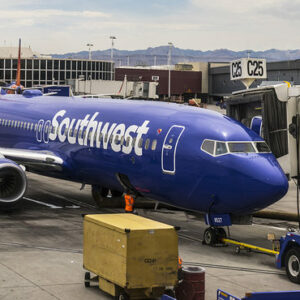The Supreme Court heard oral arguments last month in Southwest Airlines Co. v. Saxon, a case that came to the court on a writ of certiorari from the 7th Circuit.
The issue came about because of overtime pay for an airport ramp supervisor, Latrice Saxon, whose job it was to help and manage Southwest Airlines cargo workers at Chicago’s Midway Airport. At Southwest, people who have Saxon’s supervisory role are not covered by the collective bargaining agreement. They are contractually obligated to deal with any wage issues not under the collective bargaining agreement but rather through arbitration.
Instead of going through arbitration, Saxon sued Southwest for failing to pay for overtime for herself and other supervisors under the Fair Labor Standards Act.
The reason, Saxon argued, that Southwest was wrong when they moved to stay the lawsuit and go to mandated arbitration is that Section 1 of the Fair Labor Standards Act exempted her as she was “engaged in foreign or interstate commerce.”
This argument didn’t work at the U.S. District Court, which held that simply handling goods as part of a network wasn’t enough to meet the interstate commerce test. The employee in issue would actually need to transport the goods — which seems a very limited, restrictive view of how interstate commerce works today.
The 7th Circuit reversed, holding that: “The act of loading cargo onto a vehicle to be transported interstate is itself commerce, as that term was understood at the time of the Arbitration Act’s enactment in 1925. Airplane cargo loaders, as a class, are engaged in that commerce, in much the way that seamen and railroad employees were, and Saxon and the ramp supervisors are members of that class. It therefore follows that they are transportation workers whose contracts of employment are exempted from the Arbitration Act.”
Jason Matzus, a Pittsburgh lawyer, explains why the Supreme Court’s decision in Saxon matters: “This is an important case as the nature of commerce continues to evolve in our country. The definition of interstate commerce is being challenged by issues such as online and remote workers, and this is something that our courts need some guidance on from the Supreme Court, which they will get from this decision.”
So if the Supreme Court decides that workers who simply load or unload goods from vehicles that “do” interstate commerce by the fact that they travel, the court could be opening the door to a new class of workers who will be exempt from the Federal Arbitration Act.
Often in listening to a Supreme Court oral argument, one gets a clear sense of where the justices are heading but this wasn’t the case on Monday.
It seemed as if the justices were slightly less sympathetic to the 7th Circuit’s decision in this case and more inclined to the holding of the 5th Circuit in a related 2020 case, Eastus v. ISS Facility Services. In Eastus, the 5th Circuit was aligned with the District Court here in Saxon, holding that an airport supervisor was not exempt from arbitration.
Ultimately, for workers such as Saxon and her Southwest co-workers, the result of this case will determine whether they can pursue collective action in federal court for issues such as overtime pay or whether they need to resolve claims on a one-by-one basis through arbitration.

